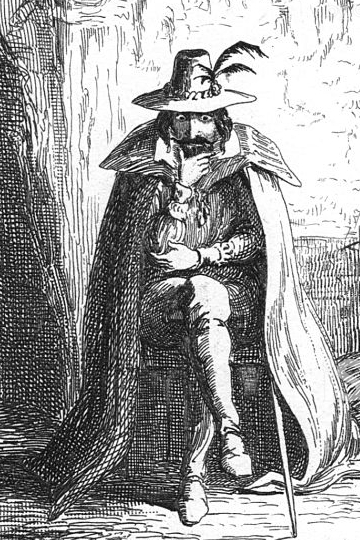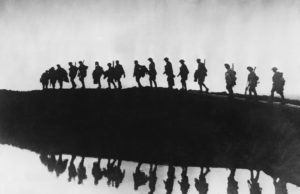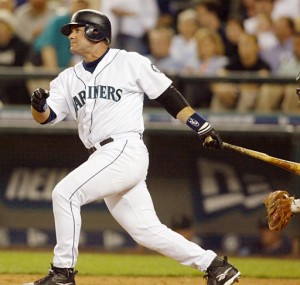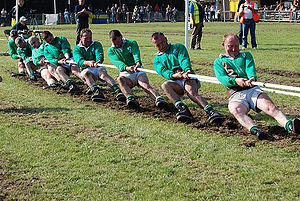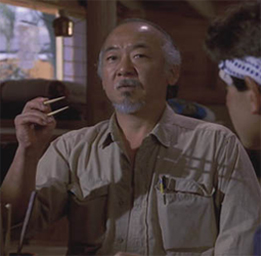In the fading months of this annus horribilis, America received unwelcome word of two distasteful nods to its pop cultural past. Excommunicated wrestling superstar Hulk Hogan has been contacted by WWE (according to his daughter’s comments to TMZ) regarding WrestleMania 33 this coming year. And earlier this month, plans were announced to revamp the hometown of Harper Lee into a tourist destination through creating the Harper Lee Trail, a collection of attractions that would feature a museum and replicas of three homes set in her classic novel To Kill a Mockingbird.
Both proclamations met with a mixed reception. Washington Post reporter Travis M. Andrews writes that, while “it’s impossible to guess how Lee would have felt about the trail, it’s not a stretch to claim” that the famously private author “likely wouldn’t have been pleased.” Literary critic Sarah Churchwell goes so far as to warn that the Monroeville, Alabama project could create “a Disneyland for racists” nostalgic for a bygone age. As for the Hulkster, he spent most of 2016 under the wing of this delusional benefactor (Brother!).
These foreboding announcements harken back to last year, when two paragons of American virtue were bodyslammed by the unexpected release of racially charged content long kept from public view. Yes, for devotees of Hogan and southern trial lawyer Atticus Finch, July 2015 was the cruel summer when it came crashing down and it hurt inside. Hogan fell into ignominy when audio was released from a recording (made several years ago) that caught the Hulkster making racist remarks – some of which involve theoretical suitors for his daughter. WWE swiftly cut ties with the “Real American”, even erasing mentions of its former top star from the company’s website.
This controversy followed an even more shocking release that took place ten days earlier: that of Go Set a Watchman, Lee’s long-awaited follow-up to To Kill a Mockingbird. The book was published, writes Eve L. Ewing in The Atlantic, when Lee was “at the eve of her death and beset with a dementia that some say enabled her attorney to take advantage” of her condition. Although written prior to her debut novel, Watchman functions as a companion piece to that beloved Pulitzer Prize-winning story. Or, as denounced by New York Times columnist Joe Nocera, serves as “one of the epic money grabs in the modern history of American publishing.” In this book, Atticus Finch expresses segregationist views and attends a Citizens’ Council meeting.
Suddenly, the most famous wrestler of his generation and the legal demigod of what Oprah Winfrey proclaimed “our national novel” have seemingly been exposed as bigoted blowhards. How could these emblems of American idealism fall so far, so fast? Join us as we investigate the rise and fall of “the steward of the nation’s conscience” – and the man who gave the world Hulkamania.
Tale of the Tape
Atticus: Middle-aged and bespectacled; seersucker suit; poor indeed, but not as poor as the Cunninghams. Member of Alabama state legislature.
Hogan: 6’7, 303 lbs.; yellow spandex trunks with bandanna and tear-away shirt; net worth dependent on future sextape-related legal proceedings. Star of Santa With Muscles.
Professional Accolades
Atticus: Academy Award for Best Actor (as awarded to Gregory Peck for his portrayal in the 1962 film adaptation).
Hogan: Six-time WWE Champion.
Biggest Fans
Atticus: Other attorneys. As the American Bar Association gushes, “To lawyers, he was the lawyer they wanted to be. To nonlawyers, he fostered the desire to become one.”
Hogan: Hulkamaniacs. These fanatics adhere to the teachings proselytized by Hogan himself in this worshipful song.
Tag Team Partners
Atticus: Family cook (and surrogate disciplinarian) Calpurnia.
Hogan: Wrestling manager (and megaphone enthusiast) Jimmy “Mouth of the South” Hart.
Finest Hours
Atticus: His eloquent yet fiery trial defense of Tom Robinson.
Hogan: His eloquent yet fiery title defense against Andre the Giant at WrestleMania III.
Toughest Opponents
Atticus: Racist Jury; Social Injustice.
Hogan: “Rowdy” Roddy Piper; “Macho Man” Randy Savage.
Finishing Moves
Atticus: The Closing Argument.
Hogan: Atomic Leg Drop.
Hero Worship
Atticus, as praised by Thane Rosenbaum, Senior Fellow at New York University School of Law: “Babies are named after him. Indeed, despite his many parental shortcomings, he is the father many wish for themselves.”
Hogan, as praised by WWE announcer Gorilla Monsoon at WrestleMania VII: “Our national hero… An unprecedented winner, three times, of the World Wrestling Federation title. The gold once again around the waist of that incredible individual. And put it all to rest, the war is now officially over. Keeping his promise good to his nation, the immortal Hulk Hogan.” Note: Donald Trump cheered on Hogan from ringside during this match.
Fight for the Rights of Every Man
Atticus: “I wanted you to see what real courage is, instead of getting the idea that courage is a man with a gun in his hand. It’s when you know you’re licked before you begin but you begin anyway and you see it through no matter what. You rarely win, but sometimes you do.”
Hogan: “But just like Donald Trump, Macho Man, I hope you’re ready, brother. Because Donald Trump has questions in his own mind… Donald Trump, don’t worry about my Hulkamaniacs. They’re survivors! They’re ready!”
Epic Challenge to His Peers
Atticus: “I am confident that you gentlemen will review without passion the evidence you have heard, come to a decision, and restore this defendant to his family. In the name of God, do your duty.”
Hogan: “Whatcha gonna do when Hulkamania runs wild on you?”
Best Advice for the Next Generation
Atticus: “First of all, if you can learn a simple trick, Scout, you’ll get along a lot better with all kinds of folks. You never really understand a person until you consider things from his point of view … until you climb into his skin and walk around in it.”
Hogan: “Train, say your prayers, eat your vitamins, be true to yourself, true to your country. Be a REAL American.”
Heel Turn
Atticus: “Do you want Negroes by the carload in our schools and churches and theaters? Do you want them in our world?”
Hogan: Uhhh … you can read all that here.
Enemies List
Atticus: The NAACP and U.S. Supreme Court.
Hogan: African-Americans and online media companies.
Definitive Response
Atticus: From Jean Louise “Scout” Finch, who swore, “I’ll never believe a word you say to me again. I despise you and everything you stand for.”
Hogan: From WWE, which released a statement noting that Hogan’s contract had been terminated, and claiming a commitment “to embracing and celebrating individuals from all backgrounds as demonstrated by the diversity of our employees, performers and fans worldwide.”
Kneejerk Reactions
Atticus, as bleated in this Daily Mail headline: “It’s like finding out Santa beats his reindeer.”
Hogan, as pleaded by Terry Bollea (aka Hulk Hogan): “Oh my gosh, please forgive me. Please forgive me. I’m a nice guy. I’m not the Hulk Hogan that rips his shirt off and bang, bang, bang, slams giants. I’m Terry Bollea. I’m just a normal man.”
Public Defenders
Atticus, as defended by Harper Lee biographer Charles J. Shields: “We could turn this into a plus in our national conversation about racism and the Confederate flag. It turns out that Atticus is no saint, as none of us are, but a man with prejudices.”
Hogan, as defended by The Rock: “I was pretty disappointed with what I heard, like all of us, by the way… I’ve known Terry for a lot of years, my dad helped train him in Florida in the ’70s when he was breaking into the business… I have not known the man to be racist.”
Character Witnesses
Atticus, as represented by Peggy Noonan: “Atticus, now in his 70s, holds views the reader will reject, yet he is patient, sincere—more human as a character than his daughter.”
Hogan, as represented by his daughter, Brooke, in a poem posted online: “If you knew my father, you would know how hard he fought… and the way it brought a smile to people light, medium and dark.”
Strike That from the Record!
Atticus: The Washington Times’ Charles Hurt babbled the following: “Freedom can be ugly business and sometimes you need a man in a suit with a steady hand who can shoot a rabid dog. It doesn’t matter what his opinions are on black people or white people. He just has to be able to shoot straight.”
Hogan: Retweeted a message about President Obama not being similarly vilified for using the N-word, context be damned.
Following their top-rope swan dives from grace, both Atticus and the Hulkster have experienced comebacks of sorts. HarperCollins Publishers announced that Go Set a Watchman is now the fastest-selling book in the company’s history. Meanwhile, Hogan settled his litigation with Gawker Media for $31 million last month. He also expressed interest in serving as the running mate for his old buddy Trump – a low to which even a newly Alt-Right Atticus would hopefully never stoop.




